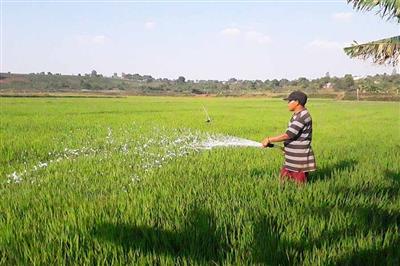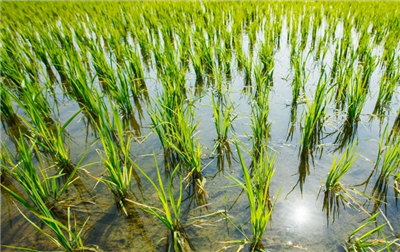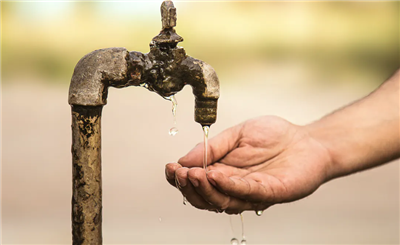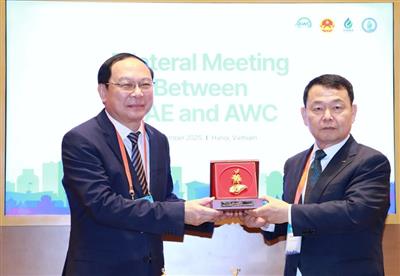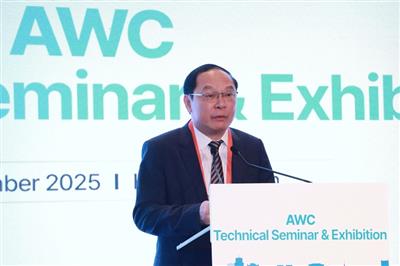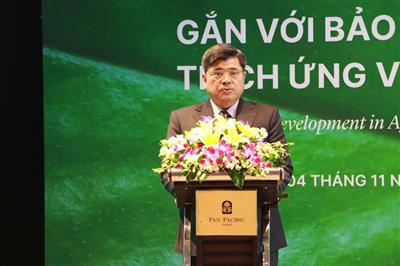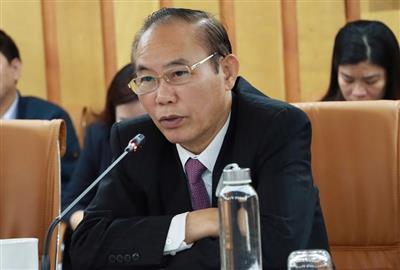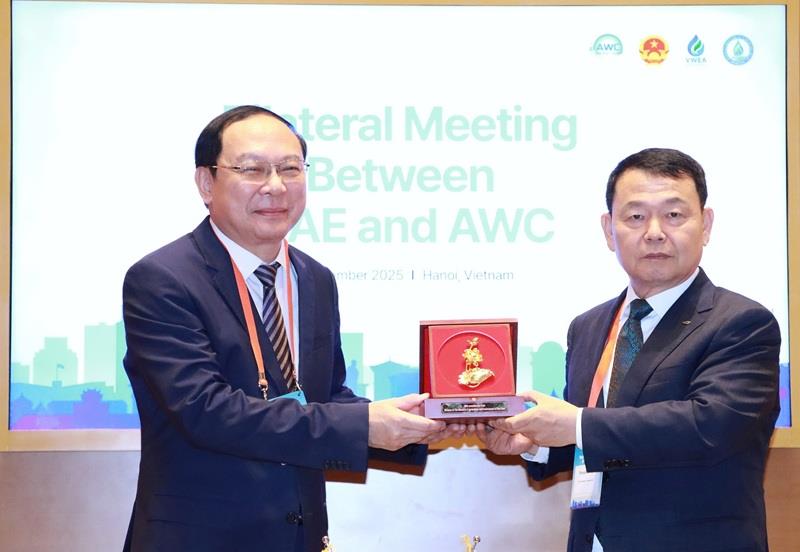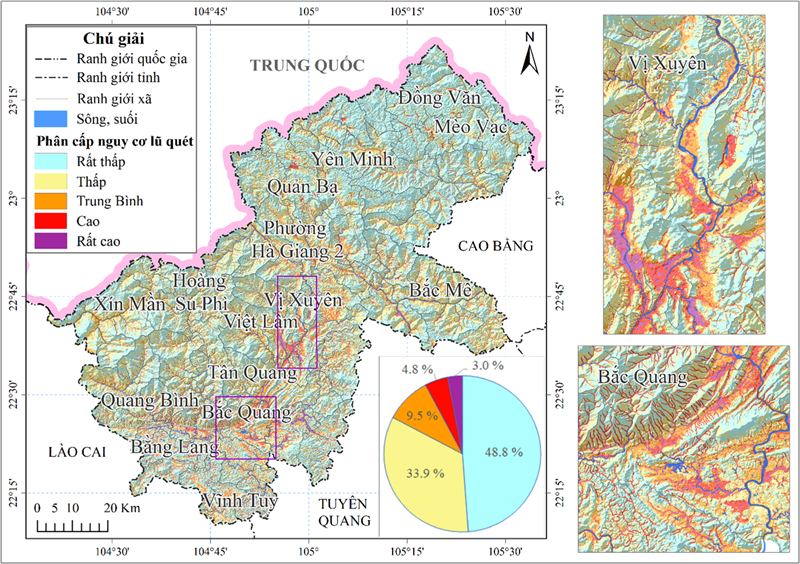
Vietnam-France cooperation opens new pathways for climate-adapted agricultural training
17/10/2025TN&MTAmid Vietnam’s drive for a green transition and international integration in vocational education, the establishment of a Vietnam-France cooperation framework for 2025-2027 in agricultural training marks a significant milestone. The program aims to cultivate a generation of “green-digital-climate-resilient” professionals, based on France’s advanced agricultural training models, thereby laying an institutional foundation for ecological and sustainable agriculture.
On October 17, the Ministry of Agriculture and Environment of Vietnam, in coordination with the French Ministry of Agriculture and Food Sovereignty (MASA), organized a seminar titled “Vietnam-France cooperation on strengthening climate-resilient agricultural capacity”, launching a new phase of bilateral cooperation (2025–2027) in agricultural technical training.
Human resource development through Vietnam-France cooperation
Opening the seminar, Mr. Pham Ngoc Mau, Deputy Director of the Department of International Cooperation, highlighted that the event took place at a strategic moment as Vietnam and France had recently elevated their relationship to a Comprehensive Strategic Partnership. Beyond being a major investment and trade partner in Europe, France has contributed significantly to training, research, and technology transfer in Vietnam’s agricultural sector.
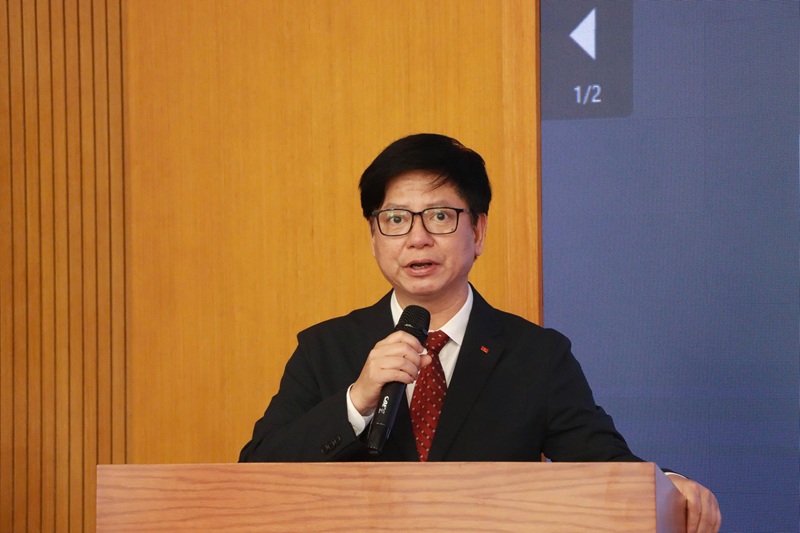
Mr. Pham Ngoc Mau, Deputy Director of the Department of International Cooperation, emphasized that Vietnam-France cooperation plays a strategic role in developing high-quality human resources for the green, digital, and circular transformation of Vietnamese agriculture (Photo: Khanh Linh)
“Over recent years, both sides have implemented numerous practical cooperation projects, including the Ecological Agriculture Transition and Safe Food Systems Project (2020–2025); digital transformation research in agriculture in the Mekong Delta; and collaborative research programs with French universities, institutes, and research agencies in organic agriculture, ecological farming, artisanal salt production, and sustainable value chain development. These initiatives have strengthened research capacity, technology transfer, and the development of innovative agricultural models in Vietnam,” Mr. Pham Ngoc Mau emphersized.
He confirmed that in the context of Vietnam’s green, digital, and circular agricultural transition, cooperation with France, a country with one of Europe’s most advanced agricultural education systems, has strategic significance for enhancing human resource quality.
Mr. Tran Viet Anh, Officer of the Department of Personnel Organization, reported that Vietnam currently has 32 agricultural training institutions and 11 research institutes under the Ministry, supplying tens of thousands of engineers and technical workers annually. Training institutions are gradually reforming curricula, enhancing practical training, and strengthening integration between education, research, production, and market needs. However, in light of green and digital transformation, circular agriculture, and climate adaptation, the demand for high-quality human resources with modern vocational skills and innovative thinking is more urgent than ever.
Under this direction, Vietnam and France will jointly develop training programs integrating green skills, digital competencies, and climate adaptation capacity. New modules will focus on agricultural economics, sustainable farm management, circular economy, and digital transformation in agricultural production. France has committed to supporting bilingual learning materials, virtual simulation platforms, and expertise in delivering programs according to European vocational standards. The goal is to provide Vietnamese students early access to advanced technologies and reduce the gap between training and practical needs.
Learning from French experience: “Training for production with a new approach”
At the seminar, Ms. Virginie Méchaussie, a French training expert, explained: “Training for production with a new approach, for transition and ecological agriculture” is a model that has proven effective in transforming educational institutions into “farm-laboratory-enterprise” systems. This model enables students to actively participate in the transition process, mobilize networks of instructors and institutions, and make ecological agriculture a pillar of climate adaptation strategies.
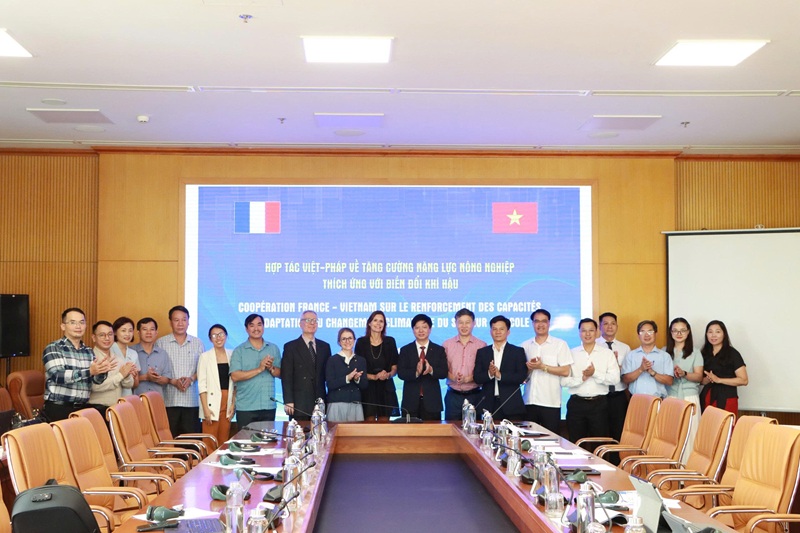
Vietnam and France launch a new cooperation framework (2025–2027) in agricultural training, aiming to build a generation of “green-digital-climate-resilient” professionals and advance ecological, sustainable agriculture (Photo: Khanh Linh)
For the 2025–2027 cooperation period, the Ministry of Agriculture and Environment of Vietnam aims to adapt the EPA2 concept to the Vietnamese context through the “Farm-Lab-Class” model. This approach has been tailored to Vietnam’s socio-economic conditions, focusing on connecting schools, enterprises, and farmers within a training, research, and production chain.
Accordingly, agricultural colleges and universities will become hubs for ecological agriculture innovation, where students not only acquire technical skills but also develop management, entrepreneurship, and climate adaptation competencies. The France-supported Training of Trainers (ToT) program will strengthen core faculty capacity, while bilingual learning materials and digital training tools will help Vietnam gradually align with European standards.
Vietnam-France cooperation will also expand into a network for ecological agricultural training, linking institutions, research institutes, and enterprises from both countries. This collaboration is not only about transferring technical models but also about transferring knowledge and action-based learning culture, contributing to reforming Vietnam’s agricultural vocational education system toward autonomy, flexibility, and international integration.
Insights from Vietnamese training institutions
The Vietnam-France working group recently conducted field surveys at three agricultural training institutions: Hanoi College of Mechanical Engineering, Hai Phong College of Fisheries and Food Technology, and Northeast College of Agriculture and Forestry (Lang Son). The surveys provided a clear assessment of Vietnam’s agricultural vocational training landscape—highlighting strengths to leverage, limitations to address, and cooperation opportunities for 2025–2027.
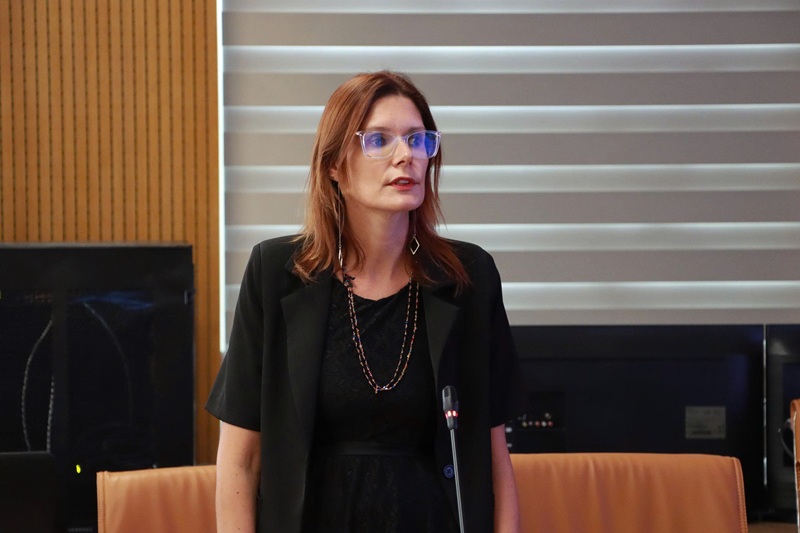
French expert Ms. Virginie Méchaussie highlighted that Vietnam’s agricultural vocational system has great reform potential, with strong faculty and practice farms, though modernization of curricula and facilities remains a key challenge (Photo: Khanh Linh)
Ms. Virginie Méchaussie observed that Vietnam’s agricultural vocational system has substantial potential for reform. Schools enjoy curriculum autonomy, instructors are professional and committed, and facilities meet basic teaching requirements. Most institutions have practice farms, which are essential for implementing hands-on, production-linked learning models. However, challenges remain: practical training hours are limited and start late; teaching equipment is outdated; curricula do not fully integrate ecological agriculture and climate change content; and there is no unified online platform for sharing learning materials, slowing methodological updates.
Despite these challenges, French experts noted Vietnam’s strong advantages for developing green agricultural training. Vietnam’s biodiversity-rich agriculture, extensive indigenous knowledge, and clear policy framework provide favorable conditions for the transition. Strategic documents, including the 2021–2030 Sustainable Agriculture and Rural Development Strategy, the draft Vocational Education Law, and ASEAN guidelines on ecological agriculture, serve as institutional levers to promote international cooperation, especially in climate-adapted human resource development. Growing export market demands for green standards, traceability, and emission reduction further push the training system to adapt.
Based on survey findings, both sides proposed three priority cooperation directions: reform curricula and teaching methods to integrate green skills, digital competencies, and climate knowledge while developing bilingual project-based learning materials; enhance practice farms as “green laboratories” for students, instructors, and enterprises; and strengthen linkages among schools, management agencies, and enterprises from both countries to form a collaborative network for training, research, and production.
Mr. Pham Ngoc Mau, Deputy Director of the Department of International Cooperation, concluded: “With a spirit of practical and open cooperation toward the future, today’s seminar will contribute to implementing commitments under the Vietnam-France Comprehensive Strategic Partnership, while establishing a solid foundation for a Vietnam-France agricultural education network, aiming to develop high-quality human resources and support the transition to a green, smart, and sustainable agricultural sector.”
The seminar is regarded as an important step for Vietnam to advance institutional reform in agricultural vocational education, linking training with practical application, market needs, and sustainable development.
Khanh Linh - Ngoc Huyen






